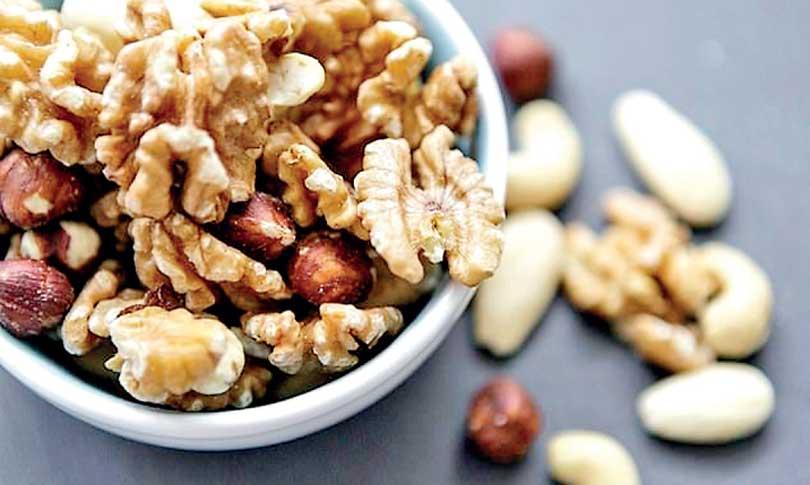07 Oct 2020 - {{hitsCtrl.values.hits}}

 Susie Burrell, from Sydney, said there are a number of anti-inflammatory foods that should be consumed regularly - including fresh fruit, leafy green vegetables, nuts and legumes.
Susie Burrell, from Sydney, said there are a number of anti-inflammatory foods that should be consumed regularly - including fresh fruit, leafy green vegetables, nuts and legumes.
The mother-of-two said inflammation is the body’s natural response when the digestive system is put under stress, is injured or damaged from chronic conditions such as Type 2 diabetes and fatty liver.
It has been known for some time that our diet, or specifically the balance of key nutrients in our diets can play a key role in preventing and managing the levels of inflammation in the body,’ Susie said.
‘Specifically it is the general shift towards more processed foods, and a greater intake of the types of fat that can promote inflammatory pathways that is hypothesised as one of the key reasons for inflammatory conditions.’
If inflammation persists after long periods of time, it’s important to seek health advice from a professional.
Get the fat balance right
While some types of good fat help reduce inflammation, others have a tendency to increase it and so it’s important to get the balance right.
Susie said good fats, polyunsaturated and monounsaturated fats, should be consumed three to four times daily by eating walnuts, oily fish, flaxseeds, avocado and almonds.
Whereas only two to three serves of saturated fat from meat, dairy and coconut products should only be consumed to minimise inflammation.
‘Many of us fail to get this balance right as we do not eat enough oily fish and by overdoing the coconut products and fatty meat,’ Susie said.
If these portion sizes are consumed, the individual will balance their daily recommended source of fat.
Eat plenty of fruits and vegetables
Eating fresh fruit and vegetables is highly recommended to maintain a healthy diet, and eating specific antioxidant foods will help the digestive system and minimise inflammation.
‘Countries with the longest lifespan and the lowest prevalence of chronic disease are known to consume seven to ten serves of antioxidant rich fresh fruits and vegetables every single day,’ Susie said.
‘The brighter the colour of the fresh fruit or vegetable, the higher the antioxidant content and the more antioxidants we consume naturally as part of our daily diet, the better it is for the health of our cells long term.’
Berries are antioxidant-rich fruits, but Susie recommends eating carrots and capsicums to ‘lower inflammatory makers in the blood’.
She also suggests eating leafy green vegetables every day to boost magnesium levels.
Drink more tea
Although red wine and hot dark chocolate are good for the body, Susie recommends swapping these drinks for a cup of tea. ‘Tea, both and black and green tea, is linked to reduced inflammation in several studies,’ she said. This helps soothe the digestive system and can reduce inflammatory levels, which can settle the stomach in the evening after food has been consumed.
Cut out sugary drinks and refined carbs
Cutting down on sugar and refined carbohydrates from a diet is usually recommended when losing weight, and Susie also endorses this to reduce inflammation.
She said there is a link between the ‘glycaemic load of a diet and chronic inflammatory conditions’.
The glycaemic load of food is the number that estimates how much food will raise an individual’s blood glucose level. ‘One of the easiest ways to reduce glycaemic load is to focus your diet less on heavy carb foods such as white bread, rice, pasta and sweet snacks and instead shift your focus to lean proteins such as fish, eggs, lean meat and chicken and plenty of vegetables,’ Susie said.
Liquid forms of sugar such as soft drinks and alcohol are also known to cause inflammation and small amounts should be consumed at any given time.

24 Nov 2024 6 hours ago
24 Nov 2024 8 hours ago
24 Nov 2024 9 hours ago
24 Nov 2024 24 Nov 2024